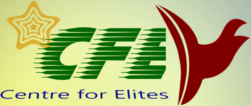Academis’s role in conflict reporting
Academia also has the power to influence the media, in terms of conflict reporting, in a number of ways (although its power is generally weaker than the other major actors). When reporting on conflicts, journalists usually have little background knowledge on the conflict, its causes and its participants.

They thus often turn to academics, or specialists in the field or in the region in question for information and analysis, who are seen as authoritative voices on those subjects and give credibility to media reports. Such experts may be interviewed on television, write columns or op-ed pieces in the newspapers and other periodicals. Specialists that prove to be popular may be called upon again, becoming regular contributors to the media. Some may even cross over to the media on a more permanent basis.
Conflict reporting through the media
Academics may also use the media to draw attention to their studies, in the process influencing the conflicts the media choose to cover and how they cover them. The Clash of Civilizations and the Remaking of World Order by Samuel Huntington (1996), for example, has had a broad influence on the media and how it views conflicts in general.
It is seen by much of the media as a framework from which it can view and analyse Western clashes with the Islamic world. Mortality studies in the DRC that have shown previously unthinkable levels of conflict related death were brought to light through the media and did, fora time, manage to attract moderate levels of attention in the media to that largely neglected conflict reporting.
Discover more from Centre for Elites
Subscribe to get the latest posts sent to your email.
